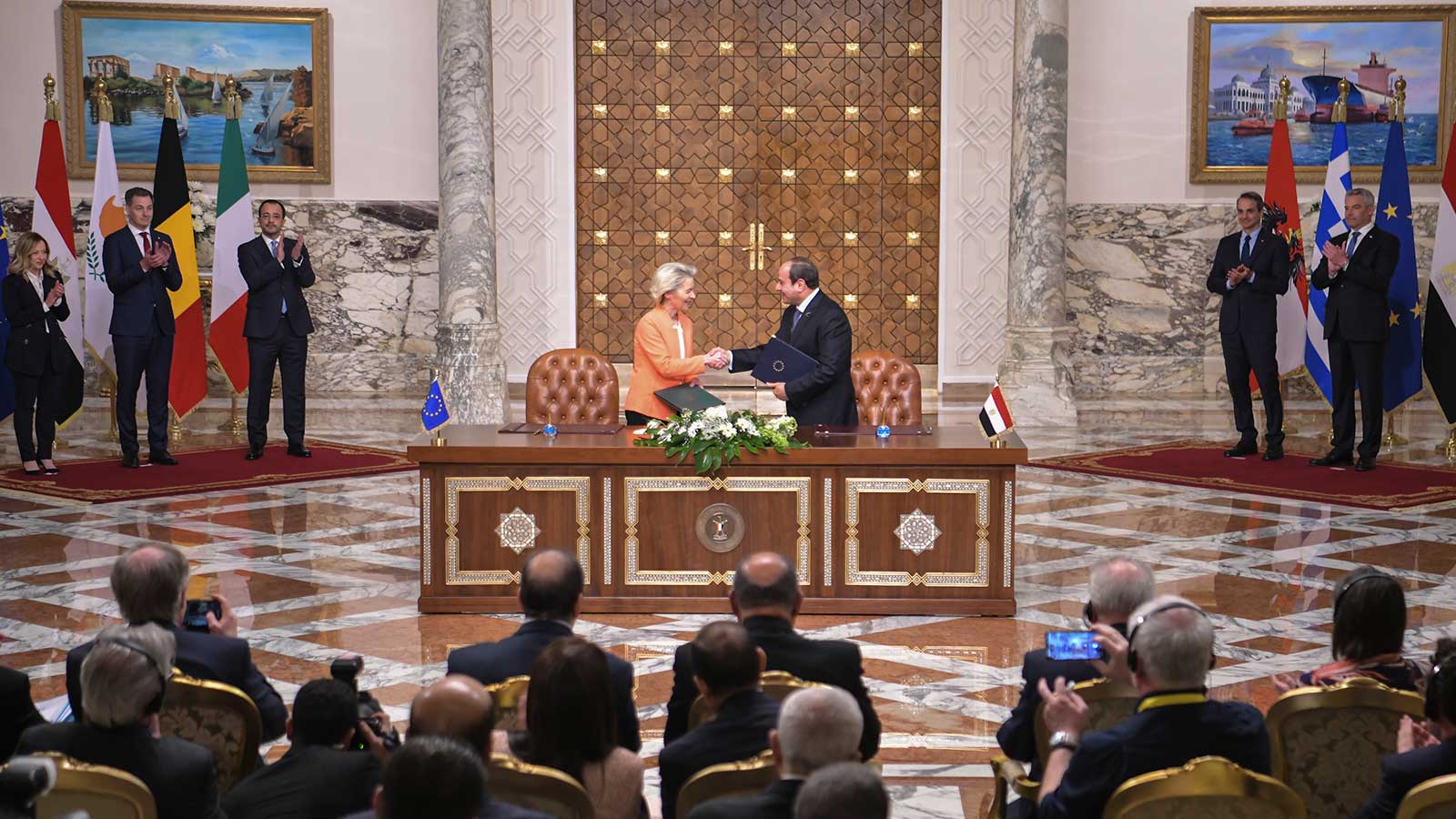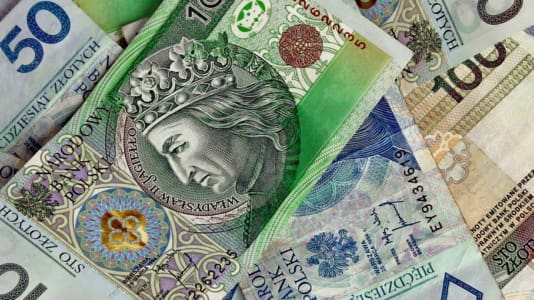The European Union has announced a €7.4 billion funding package for Egypt in an attempt to enhance cooperation with the Arab nation and encourage further measures to stem illegal immigration flowing into Europe.
Six European leaders met with Egyptian President Abdel Fattah el-Sisi in Cairo on Sunday to sign declarations covering commitments to agriculture, financial support for small and medium-sized businesses, infrastructure development, and health.
The package comprises €5 billion in preferential loans, €1.8 billion in investment deals, and a further €600 million in grants to be used in part to tackle migration over the next four years.
“This is the best way to address migratory flows,” said Italian Prime Minister Giorgia Meloni, who accompanied European Commission President Ursula von der Leyen to Cairo alongside her Greek, Austrian, and Belgian counterparts and Cypriot President Nikos Christodoulides.
“It is an important step towards the development of a real partnership capable of addressing, in an integrated way, all the complex challenges of our time, from regional ones to development and also for illegal immigration,” Meloni added.
Von der Leyen hailed the move as a “new milestone in the EU-Egypt strategic partnership,” adding that Egypt’s “political and economic weight and its strategic location” were pivotal to mitigating ongoing tensions “in a very troubled neighborhood.”
The deal follows similar agreements made with other African nations including Libya and Tunisia to help curb illegal migratory flows.
Egypt’s flailing economic woes are coupled with the fact that it neighbors conflict-ridden Gaza to the east, Sudan to the south, which remains embroiled in civil war, and Libya to the west, which is recovering from its own domestic conflicts.
Around 9 million economic migrants and refugees are estimated to be situated in Egypt, according to the UN’s International Organization for Migration, with European fears that many will continue to cross the Mediterranean in search of a fresh start in Europe.
The funding package has not just been criticized by those on the political right, who have questioned why European taxpayers’ cash is once again being redistributed to third countries, but also by leftist organizations that have denounced the European Commission for doing business with the controversial Egyptian president.
Human Rights Watch said the deal would “reward Egypt’s autocratic leader,” who it claims has “ruled Egypt with an iron fist” following his coup back in 2013.
The organization claims that Sisi’s administration has targeted political opponents, jailed critics, and suppressed independent media outlets during his reign.
“Now, this abysmal repression is being rewarded with fresh support from the EU,” it added.
“This is not about help, but about dirty deals,” said Özlem Demirel, a German left-wing MEP who accused Brussels of concluding deals “at the expense of universal human rights and democratic forces.”





